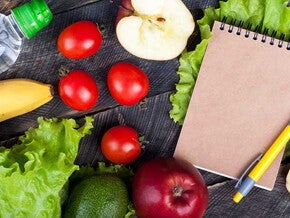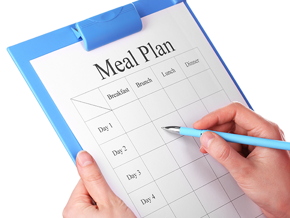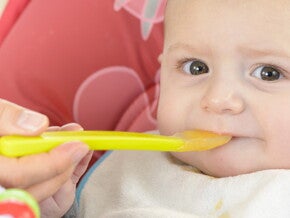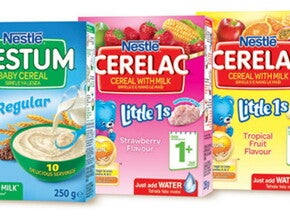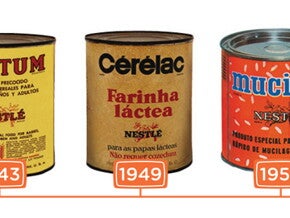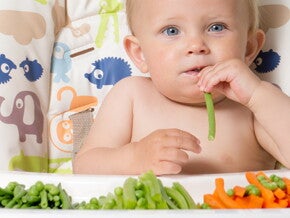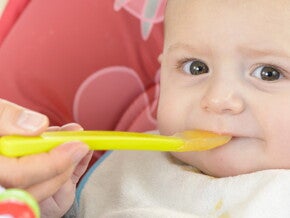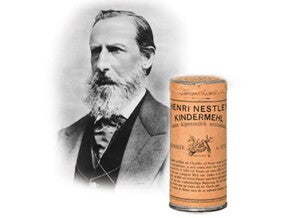
When entering the Explorer Eater stage, your baby:
- Can sit unsupported.
- Can eat from a spoon.
- Can begin to drink from a cup.
The Explorer Eater needs extra energy and nutrition from a variety of foods, in addition to milk feeds. He can chew, therefore give him minced and mashed food that includes small, soft lumps. Mash and use the food the rest of the family is eating.
During this stage, your baby learns to chew better. Encourage him to feed himself.
He wants to explore food textures, shapes and colour with his little fingers and experience new food sensations. Introduce soft foods such as cooked vegetables, for example carrots, chopped soft fruit, such as pear and banana, and finger foods (Your Explorer Eater wants to clutch finger foods, such as toast, in his closed fist (Palmer grasp), such as toast.
Introduce textures that correspond with your baby’s ability to chew
Mashed or chopped foods are suitable for ‘gumming’, but with the appearance of the front teeth (incisors), babies are usually ready for soft ‘finger foods’. Give them cooked fruits and vegetables cut into small cubes, or pasta that can be picked up by small hands. Introduce finely ground meat (poultry, etc) and meat subastitutes (dry beans, peas, lentils), one variety at a time – again, wait about a week between the introduction of each new food.
Foods to avoid
Round, hard foods, such as nuts, sweets, grapes, popcorn, raw carrots, raw green pepper, chunks of hard cheese, sausages or hot dogs, may cause your baby to choke (At this stage, babies must never be left alone while eating because of the risk of choking.) and should be avoided until your baby is at least two years old.
How to handle choking
A new texture, taken for the first time, may make your baby gag out of surprise. If she does, straddle her over your forearm, with her head lower than her body and supported on your thigh. Pat her firmly on the back with the heel of your hand and encourage her to cough until the food is dislodged. Talk soothingly, gently rub her back and she’ll be more able to swallow.
Learn how to administer first aid for choking, as your baby can lose consciousness.
Attend a first aid class and learn to administer the Chest Thrust (for the unconscious choking baby) and CPR (Cardio- Pulmonary Resuscitation) to your baby and other family members.
| SAMPLE MENU | |
| On waking | Milk feed |
| BREAKFAST | Nestlé NESTUM or Nestlé CERELAC |
| Mid-morning | Milk feed |
| LUNCH | Milk feed Minced chicken and veggies or Nestlé NESTUM or Nestlé CERELAC |
| Mid-afternoon | Water |
| DINNER | Milk feed Puréed fruit with yoghurt Nestlé NESTUM or Nestlé CERELAC |
| Before bed | Milk feed |


